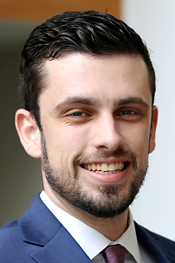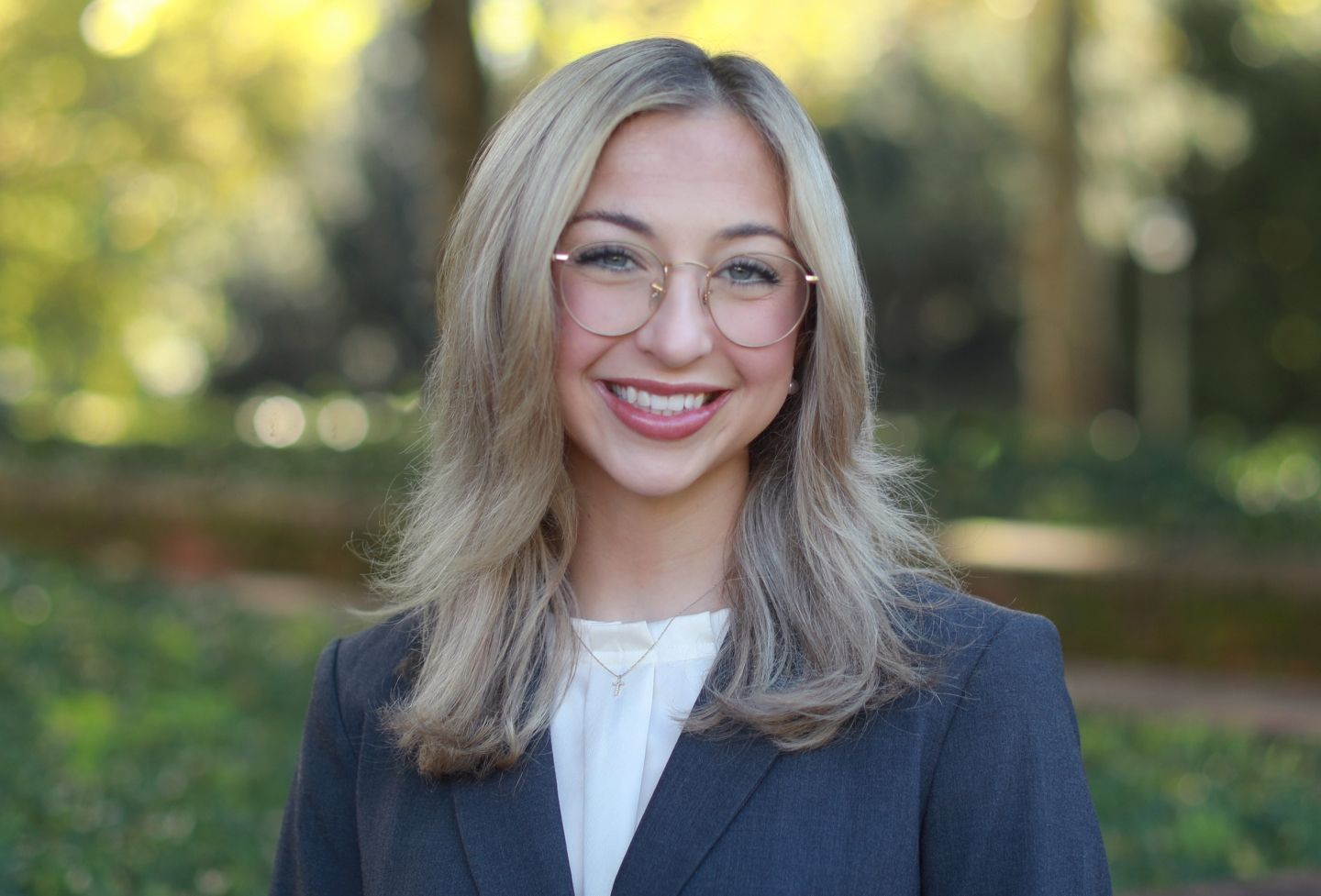Third-year students Katharine Collins and Christopher Macomber won the 90th William Minor Lile Moot Court Competition at the University of Virginia School of Law on Tuesday.
The appellants defeated fellow third-years Kendall Burchard and Scott Harman-Heath, the appellees, to take home the Kingdon Moot Court Prize.

In addition, Harman-Heath won the Stephen Pierre Traynor Award for best oralist. All four finalists received the James M. Shoemaker Jr. Moot Court Award.
Presiding over the competition were U.S. Appeals Court Judges Albert Diaz of the Fourth Circuit and Karen Nelson Moore of the Sixth Circuit, and Vice Dean Leslie Kendrick ’06, who substituted for Judge Stephanos Bibas of the Third Circuit, who was unable to attend.
Held annually, the competition starts with a field of about 50 individual competitors, writing briefs and arguing student-written problems in a mock federal or state appeal. Students pair into two-person teams upon advancing to the quarterfinal round.
In preparation for the final round, the winning duo said they edited briefs together to give them a singular voice and talk out issues that may have been overlooked. They also held upwards of 15 mooting sessions per round, videotaping many of them. The process involved dozens of other people who helped along the way, Macomber said, including their unofficial coach, David Gremling ’19.
“On the day of finals, the judges only saw Kat and me — but quite literally sitting behind us were dozens of people who over the past two years have helped moot us along the way,” Macomber said.
This year’s scenario involved Fifth Amendment rights against self-incrimination. Written by third-year law student Derek Keaton, the problem asked whether the protection is a trial right or if it applies prior to trial. It also asked if, for qualified immunity purposes, whether the law surrounding the constitutional violation has to be clearly established or instead if only the law surrounding the officer’s conduct has to be clearly established. The problem was similar to one addressed in a Supreme Court Litigation Clinic case last term.
Unlike with some other moot court teams, Collins and Macomber were not section-mates or even classmates when they paired up. They became teammates when a mutual friend connected them after the preliminary round.
“It worked out remarkably well, not just in terms of results, but we also had a great time,” Collins said. “I’d say we got lucky that we both have pretty easy-going personalities but are equally willing to put in a lot of time and get things right.”
Collins said her keys to success included using logic rather than case law in practice arguments, as well as composing analogies or concise phrases to express points. Macomber said participants should focus on themselves rather than what is out of their hands.
“You can’t control the problem, the judges, or your competitors — but you can control what you put in the brief and what you do for 15 minutes on the mic,” Macomber said. “In short, stay in your lane, do your job, and the results should speak for themselves.”
After graduation, Collins will be working at Jones Day in Chicago.
Macomber will clerk for Associate Judge Craig Iscoe of the Superior Court of the District of Columbia.
In addition to the Lile Moot Court Competition, UVA Law students also compete in other appellate moot court and trial advocacy competitions nationwide.
Founded in 1819, the University of Virginia School of Law is the second-oldest continuously operating law school in the nation. Consistently ranked among the top law schools, Virginia is a world-renowned training ground for distinguished lawyers and public servants, instilling in them a commitment to leadership, integrity and community service.


